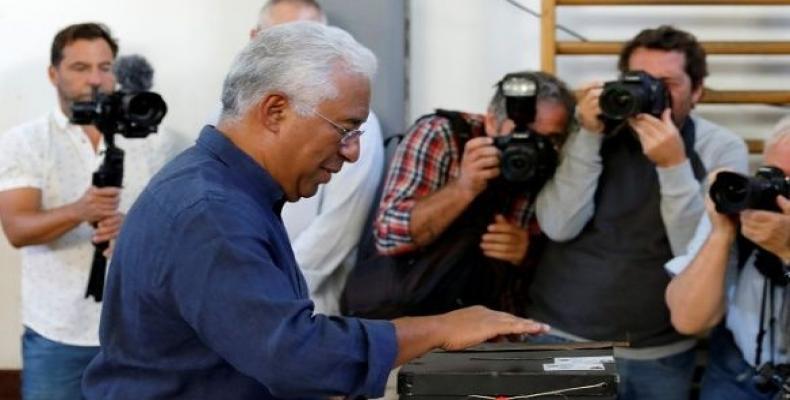Lisbon, October 6 (RHC)-- Portuguese voters went to the polls on Sunday in an election that Prime Minister Antonio Costa’s Socialists are expected to win without an outright majority, leaving the fate of potential allies as the main question.
Opinion polls indicate the Socialists will come top with between 36.5 percent and 38.8 percent of the vote but will need one or more parties to back them to stay in government. Costa’s minority government has been backed by two far-left parties since 2015.
“The main question is whether we’ll have our hands tied,” Costa said during a campaign rally Friday. “We need to have the strength to guarantee four years of stability and not be a short-term government.”
Costa’s government has been praised by Brussels and at home for combining fiscal discipline with measures to promote growth after the recession and the austerity of Portugal’s 2010-14 debt crisis.
“I’m voting for Costa again. He’s done well for us. He represented the people, defended the people, and I can only hope he does more of the same if he wins,” 81-year old Fatima Abreu said at a central Lisbon polling station early Sunday.
Luis Alberto Lopes Brazao, a 46-year old homeless man, agreed. “I’m from a poor family and I’m struggling ... But I trust this government,” he said after voting for the Socialists.
The PSD is polling at under 30 percent and is expected to lose seats, while the Socialists are seen winning more than in 2015.
Post-election negotiations are not expected to be as messy as in neighboring Spain, which still has no government more than five months after elections and is heading for a repeat poll in November.
In 2015, it took less than two months for Costa, whose party had come second, behind the PSD, to strike an unexpected alliance with two leftist Eurosceptic parties, the Left Bloc and the Communists and be sworn in as prime minister.
Since the last election, the People-Animals-Nature party (PAN) has grown in popularity and could become a kingmaker in parliament. PAN has said it is ready to support Costa if he commits to its environmentalist proposals, but it remains to be seen whether the party will win enough new seats.
Depending on how close the outcome is, a clear picture could emerge quickly or take days or even weeks. Portugal is expected to record its lowest budget deficit in 45 years of democratic history this year. The economy is on course to grow 1.9 percent in 2019, above the EU average, helped by export growth and booming tourism industry.


